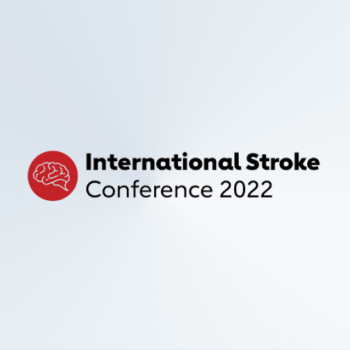StrokeViewer’s Collateral algorithm made its appearance at the International Stroke Conference 2022 (ISC22), held in New Orleans.
StrokeViewer’s Collateral algorithm at ISC22
After the entire virtual experience of last year, experts from all over the world met each other again for the International Stroke Conference 2022 (ISC22), held in New Orleans.
Thanks to the hybrid face-to-face and simultaneous virtual events structure we did not miss the event.
Even though we weren’t there physically, StrokeViewer made its appearance in a guided poster presentation from Simone Uniken Venema, where she discussed the correlation between collateral status and the time to treatment.
Time is brain, but is it valid for collaterals too?
We all agree that “time is brain,” in the presence of an ischemic stroke: the sooner the patient will receive the treatment, the better it is. However, a second dimension is gaining traction: the collateral circulation.
In some stroke patients, the infarct grows much faster than others, and one of the main reasons is collateral circulation: with good collateral circulation, the infarct growth is slower. Collaterals buy you time but will not last forever.
In the study (Simone M. Uniken Venema et al.1) presented at the ISC22, in which StrokeViewer has been used to evaluate a quantitative collateral score (qCS) from baseline CTA, the scientist assessed:
- the relation between the time to CTA and collateral status;
- whether or not collateral status modifies the relationship between onset to recanalization time (ORT) and functional outcome.
The analysis of 1813 patients who suffered an ischemic stroke (from the MR CLEAN Registry) showed that:
- collateral status is unaffected by time to CTA;
- shorter ORT are equally important for patients with poor or good collateral circulation.
Can automated collateral scoring increase your diagnostic confidence?
Would you like to find out more about what StrokeViewer can do for you and your stroke workflow?

